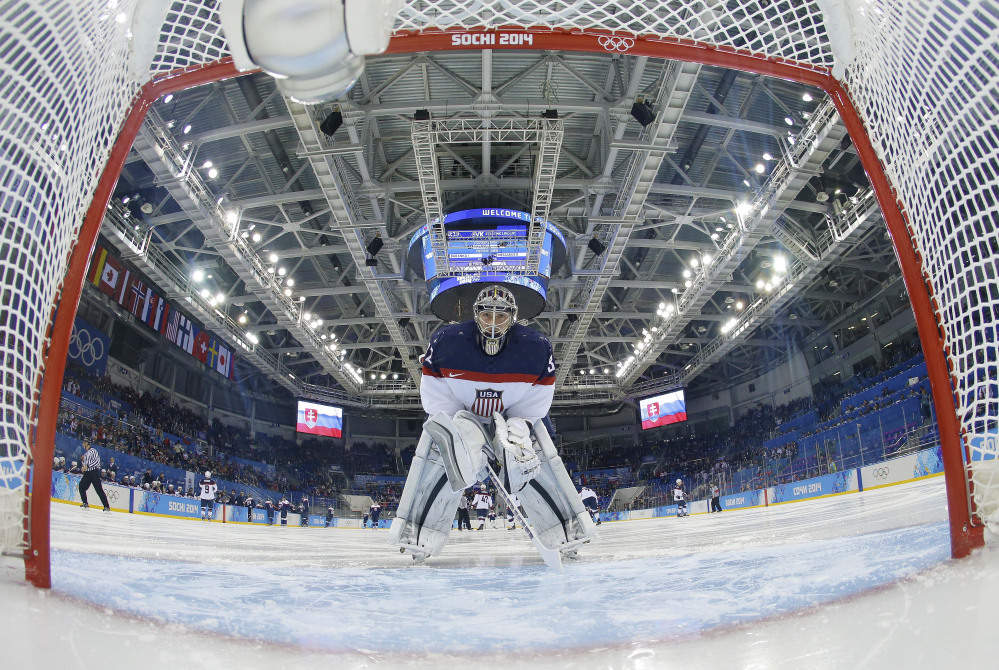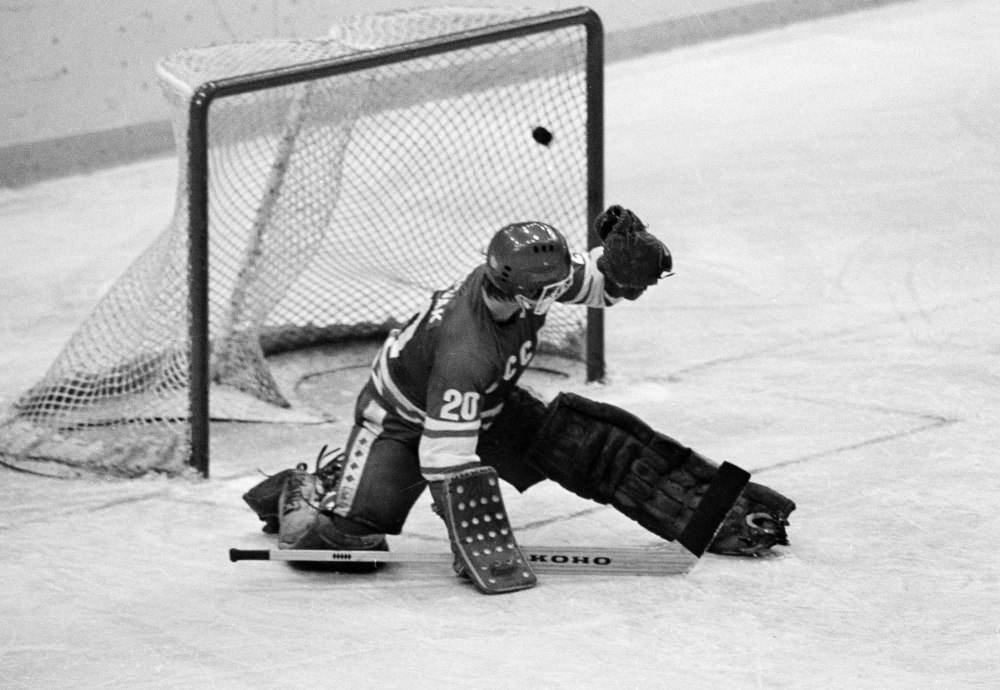SOCHI, Russia — As horror movies go, Dmitry Chernyshenko makes no claims to be a connoisseur or critic. Yet he had no problem editing the list of films that haunted his childhood down to three.
“Nightmare on Elm Street and Friday the 13th,” the head of the Sochi 2014 organizing committee said Friday.
And the third?
He smirked.
“Miracle on Ice,” Chernyshenko said.
The film depicting the upset win by a team made up mostly of U.S. college hockey players over the Soviet Union’s dynastic “Big Red Machine” at the 1980 Lake Placid Olympics is actually titled “Miracle.” But everyone old enough to remember the game — Chernyshenko was 11 at the time — knows exactly what he was talking about.
“We all grew up in the culture that hockey is a religion in our country,” Chernyshenko said, “and we were educated by this very dramatic story of the competition between our two great countries.”
That rivalry is renewed Saturday inside the Bolshoy Ice Dome in Sochi, though this time it’s only a preliminary round game instead of a semifinal. What’s also different is the diminished tension surrounding this encounter. The 1980 game was played against the backdrop of a still-simmering Cold War, portrayed as a surrogate battle of good vs. evil. Which side was which depended largely on where you viewed it from.
The young men on both sides who play one another Saturday tend to see it only through the prism of hockey.
“We don’t refer to them as the big, bad Russians, because we know a lot of them and play with a lot of them (in the National Hockey League),” said U.S. captain Zach Parise. “There just isn’t the political rivalry that there was back then. But it’s still special when you see the U.S.-Russia matchup.
“It’s still hockey rivals. It’s still sports rivals. But I guess,” he added, “you don’t have that political stuff going on in the background, too.”
A few of the old guys who played in the 1980 game have done their part to ratchet up the stakes.
Hall of Fame goaltender Vladislav Tretiak, now president of the Russian Hockey Federation, was pulled after two periods in what turned out to be a 4-3 win that paved the Americans path to the gold medal in 1980. He said earlier this week, “It was a good lesson that the Americans taught us.
“You have to respect your competitors and only after the game can you tell what you think about them. We did not have respect for the competitors at that time, but we don’t have that during this Olympics.”
Mike Eruzione, who scored the game-winning goal in 1980, bristled after opening the paper and reading Tretiak’s remarks.
“I was a little disappointed, frankly. That game meant a chance to win the gold medal. So tell me how a team of professionals — and remember, the Soviets were 27- and 28-year-old career Army guys, whose âjob’ was playing hockey — doesn’t respect an opponent.
“It’s almost like,” Eruzione said finally, “they still can’t give us credit for being a good team.”
That won’t be a problem this time around. The Russian team is under considerable pressure to deliver the gold medal. They can’t afford to overlook anyone.
“Everyone is expecting only one thing from us,” Russian captain Pavel Datsyuk said. “And we won’t have the right to make an error.”
Send questions/comments to the editors.




Comments are no longer available on this story